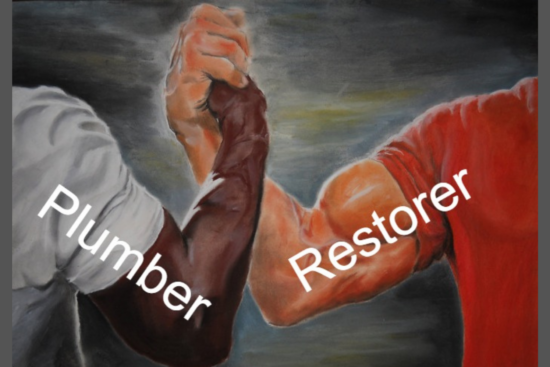- © 2026 United Restorers. All Rights Reserved.
Answering Emergency Calls
Category: Things You Should Know • October 26, 2017
I’ve written and re-written scripts for call centers over the years (both restoration call centers w/ 1000+ calls per month and “normal”, sales/service call centers). Usually, these scripts were bound by what information was needed to feed into a CRM (understandable).
Under these circumstances, initial calls were 8-10+ minutes. And because the customer was forced to wait while the CSR navigated through the CRM, it allowed for banter and questions. Lots of questions.
But here’s the thing: when that INITIAL EMS call turns into an over-the-phone inspection, a Q&A, a “Why Choose Us?”, you risk losing it. And why would you put that kind of responsibility on office support staff? [Or, as I used to argue: “We’re allowing $10/hr teenagers to win and lose jobs for us on a daily basis…”].
So how do you combat this? The sale is not closed over the phone. It can be LOST, but it CANNOT be won.
Teach your staff to think like 911 operators: control the call; get the facts [YouTube is a great source for recorded 911 call center content; have a listen, and you’ll understand what I mean]. Your office staff are not technicians or estimators or drying experts. They can certainly ask “Do you have any standing water?” and “How many rooms appear to be affected?”, but they are gathering this info to dispatch it to the expert — not to answer follow-up questions. Create this perception for the caller…
Ironically enough, MOST of your staff members just want to get off the call anyway. And MOST don’t care if the call ends because 1) a job was dispatched or because 2) “The customer said they’d call back”. That’s the cold, hard truth.
Last thing: most owner/operators need to handle calls the exact same way. I listen to a lot of recorded phone calls. Here are three tips for answering emergency calls:
- Very, very few owner/operators I know trust anyone in the business to field the initial call — besides themselves. Therefore, be your own dispatcher. Do these guys always sound tired when I talk to them? Absolutely.
- The sale is not closed over the phone. It can be LOST, but it CAN’T be won. Don’t try selling yourself. Be cordial. Control the call. Get the facts. Dispatch yourself.
- Refer to #1.



